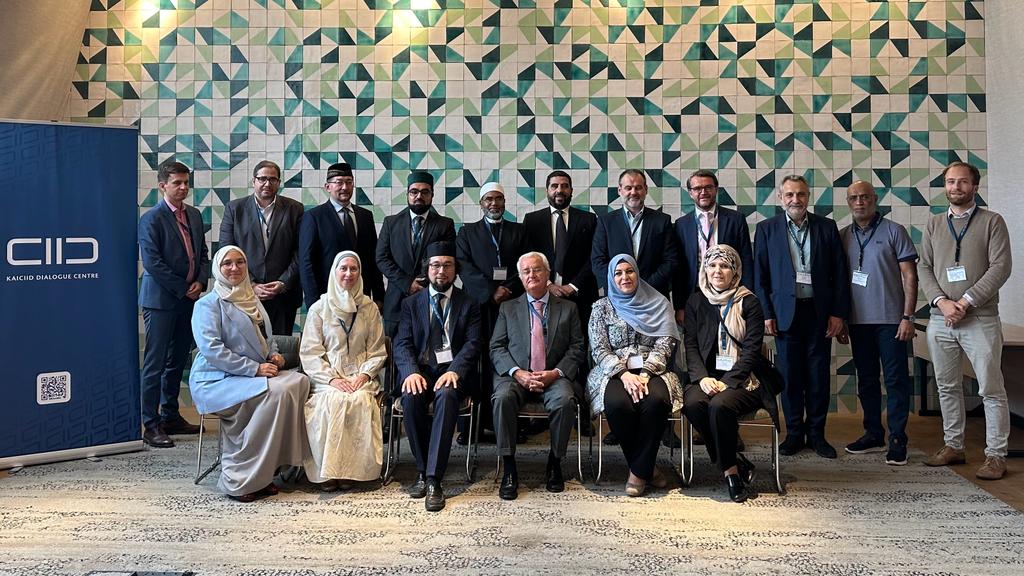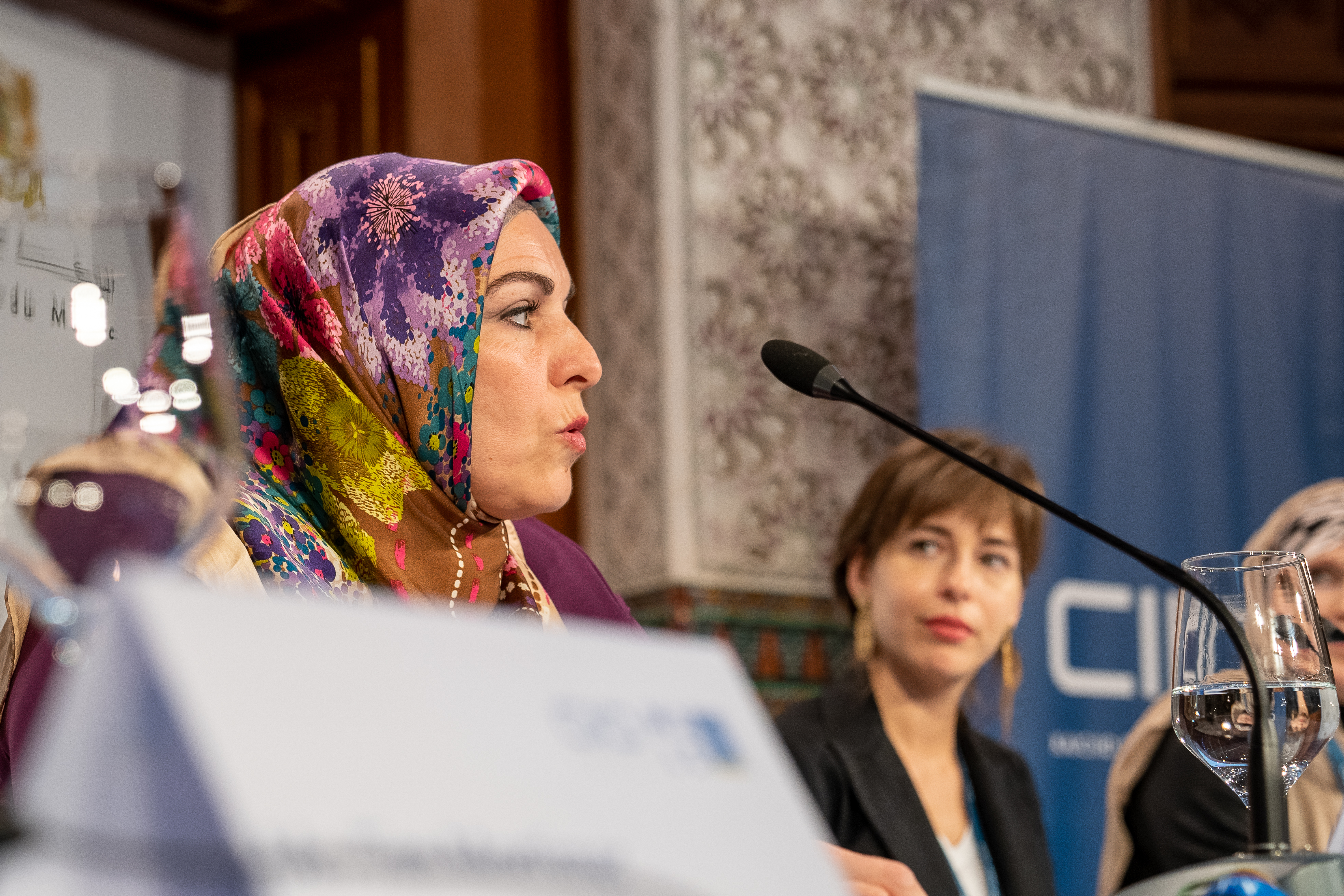
Seville's cobblestone streets echoed with the voices of religious leaders, scholars, and policymakers from across Europe this October as the Muslim-Jewish Leadership Council (MJLC) met for a board meeting and the European Muslim Leaders Majlis (EuLeMa) convened for their general assembly. In the very heart of Andalusia, a region renowned for its rich tapestry of religious histories, these representatives gathered to amplify the voice of interfaith dialogue. Given the war in Israel and Palestine and the devastating loss of civilian lives, participants acknowledged that it was a challenging time to meet but resolved to continue, recognizing that now, more than ever, Muslim and Jewish communities in Europe must stand together.
Uniting Voices, Fostering Dialogue
In the Hassan II Pavilion, originally the pavilion of Morocco during the Universal Exposition of Sevilla in 1992, leaders from across the continent discussed matters including the empowerment of women in European Muslim and Jewish communities and the role of interreligious dialogue in countering hate speech. The venue, managed by the Three Cultures Foundation (F3C), served as a symbolic backdrop for the event, a place born out of a joint initiative between Morocco and the Regional Government of Andalusia, aiming to promote dialogue, peace, and coexistence.
On behalf of Dr. Zuhair Alharthi, the Secretary General of the International Dialogue Centre – KAICIID, the Deputy Secretary General Ambassador Antonio de Almeida Ribeiro, in his address to the General Assembly of EuLeMa, praised the efforts and success of EuLeMa under Imam Yahya Pallavicini’s leadership. Highlighting Spain's role as a beacon of unity, especially in its current position as the Presidency of the Council of the European Union, he recognized Spain’s status as a crucial member state of KAICIID. He urged the attendees to view the assembly not just as a meeting but as a "reflection of our shared faith in each other."
Sheikh Faid Mohammed Said, a distinguished member of EuLeMa and MJLC, offered his reflections on the meeting, expressing, "It was an extraordinary privilege, bestowed upon us by the Almighty, to convene in person, fostering meaningful interactions, and sharing the collective wisdom stemming from our diverse experiences during this exceptionally challenging period."
He went on to emphasize the paramount objective of religion, stating, "The core mission of faith is the cultivation of our inherent humanity, with religious leaders serving as bastions of serenity and solace, extending their influence far beyond the confines of their immediate congregations."
Highlighting the timeliness and importance of the discussions that took place, he underlined, "These gatherings were not only opportune but also indispensable, as we engaged in candid dialogues concerning our communal impact and the path forward into the future."
The Power of Place
Spain, with its historic intertwining of Muslim, Jewish, and Christian cultures, was the fitting locale for such an event. In Sevilla and Cordoba, the location of a day visit, these ties are palpable and were explored by participants through cultural visits to historic Muslim and Jewish sites. Local partners Junta Islamica and Ayuntamiento de Cordoba played an instrumental role in bringing the event to Andalusia.
Throughout the four-day conference, the MJLC and EuLeMa sought to advance their shared agenda, emphasizing the significance of freedom of religion and belief in Europe. EuLeMa has developed a new action plan detailing how they will be a strong voice for Muslim communities across Europe over the next two years. Alongside the General Assembly and Board Meeting, numerous side events, workshops, and panel discussions highlighted the transformative power of interreligious dialogue. These engagements, in collaboration with local Andalusian organizations, showcased a collective aspiration for a harmonious future.
I hold firm in my conviction regarding the creation of courageous dialogues within the sanctuary of safe environments. The Muslim and Jewish communities have often looked back nostalgically upon the 'Golden Age' of Andalusia, sometimes failing to confront the profound catalysts of that era, and the relevance of these lessons in our contemporary world. During our assembly, we delved into the critical concept of understanding one another's lived experiences and traditions, recognizing their indispensable role in the historical tapestry of that era.
Participating in these discussions, against the backdrop of political tensions in the Holy Land that reverberates across our interconnected communities, was an immense privilege. To do so in the very heart of Andalusia itself was an honor. It is precisely this courage in addressing these questions that will fortify the foundations of stability for our respective communities across Europe and the broader global landscape, expressed Basya Gartestein, a leading voice in Jewish Communal Development and a speaker from the panel discussion of the empowerment of women.

Connecting Religious Leaders and Policy Makers
Throughout the events, connections were forged between religious leaders and policymakers. From discussions with Mr. Alexandre Guessel, the Special Representative on antisemitic, anti-Muslim, and other forms of religious intolerance and hate crimes at the Council of Europe, to the Deputy Mayor of Cordoba, these institutional conversations aimed to further intercultural initiatives and cement relationships with policymakers from across Europe.
Towards a Unified Tomorrow
The groups’ overarching message remained clear: to strengthen the belief that Muslim-Jewish cooperation and solidarity across Europe are more important than ever. As the proceedings in Sevilla concluded, the results echoed their ambitions. The MJLC and EuLeMa had not only reinforced their internal structures but also successfully engaged with regional and national stakeholders to amplify their message.
Imam Yahya Pallavicini, an esteemed board member of MJLC, underscored the paramount significance of the event taking place in the current context, remarking, “At this juncture, Rabbis and Imams from across Europe are collaboratively endevouring to preempt any potential exploitation of our faith and to safeguard the bedrock or our European society. We are all steadfastly committed to nurturing our communities, rooted in the timeless values or reverence, harmony and collective unity.”
And as the leaders left the historic city, the sentiments of KAICIID resonated: a collective hope for a future enriched by "harmony, tolerance, and mutual respect."
KAICIID shares its appreciation to the Muslim-Jewish Leadership Council, the European Muslim Leaders Majlis (EuLeMa), and the Conference of European Rabbis (CER), KAICIID’s three local partners, namely Junta Islamica, Foundation Tres Culturas and Fundacion Las Fuentes, and also the support of the city of Cordoba, as well as all participants, for their unwavering commitment and support.